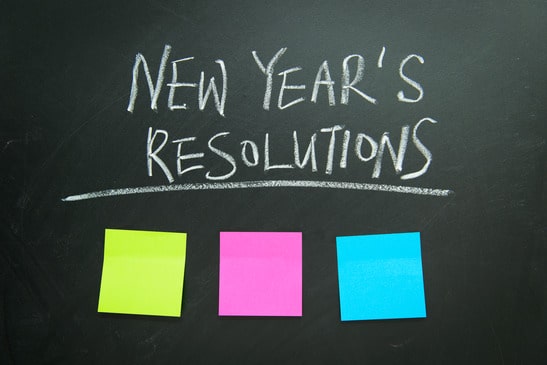"New Year’s resolutions are a way of setting a goal for the year to come and striving to become the person that you want to be." --Joaquin Montes de Oca
The first-ever New Year's was celebrated by the ancient Babylonians 4,000 years ago. Their New Years, however, took place in mid-March when the crops were planted, rather than January, or Mid-September for Rosh Hashanah. The Babylonians of Ancient Mesopotamia celebrated what was called Akitu. This involved a ceremonial public humiliation of the monarch, in which he was stripped of his royal garments and forced to kneel at the foot of a statue of one of the gods and swear that he was a good ruler. The High Priest would then slap him and drag him by his ears in hopes of making him cry. If they were successful, the gods were satisfied and his kingship was renewed for the next year, according to an article by Sarah Pruitt from History.com.
While we don’t traditionally involve anything of this sort in our celebrations, westerners today have a different way of celebrating the end of the year and the new year to come. This is especially important this year as the decade comes to a close.
New Year’s resolutions are a way of setting a goal for the year to come and striving to become the person that you want to be. This is reflected in OSA Math teacher, Karla Hannah’s resolution, “This year I want to be more honest with who I believe that I am. Sometimes we try to accommodate to what other people think that we are and what we think that they’ll like, and I need to stop doing that. My new year's resolution is to trust who I am.”
“My new year's resolution is to be more patient, drink more water and ask for help more,” said Liam O’Connor, a Visual Arts teacher.
“To stop letting people get under my skin and stuff,” shared 7th grade Literary Arts student Triece Kushner.
And sometimes resolutions aim to better the world around us, “[My resolution is] to be a better person and listen to people more,” said Director of Data and Special Projects, Romy Douglass.
“My new year's resolution is to exhibit grace and patience with my spouse,” said David Guerra, also in the Visual Arts department,, providing another example of bettering the world and people around us.
Still more of us have resolutions that don’t circulate around big ideas, for example, 8th grade Literary Arts student Grace Triantafyllos. “I want to read two books a month,” she said..
As you can see, everyone has a different way of celebrating the year to come, even if you don’t have a resolution at all.
While we don’t traditionally involve anything of this sort in our celebrations, westerners today have a different way of celebrating the end of the year and the new year to come. This is especially important this year as the decade comes to a close.
New Year’s resolutions are a way of setting a goal for the year to come and striving to become the person that you want to be. This is reflected in OSA Math teacher, Karla Hannah’s resolution, “This year I want to be more honest with who I believe that I am. Sometimes we try to accommodate to what other people think that we are and what we think that they’ll like, and I need to stop doing that. My new year's resolution is to trust who I am.”
“My new year's resolution is to be more patient, drink more water and ask for help more,” said Liam O’Connor, a Visual Arts teacher.
“To stop letting people get under my skin and stuff,” shared 7th grade Literary Arts student Triece Kushner.
And sometimes resolutions aim to better the world around us, “[My resolution is] to be a better person and listen to people more,” said Director of Data and Special Projects, Romy Douglass.
“My new year's resolution is to exhibit grace and patience with my spouse,” said David Guerra, also in the Visual Arts department,, providing another example of bettering the world and people around us.
Still more of us have resolutions that don’t circulate around big ideas, for example, 8th grade Literary Arts student Grace Triantafyllos. “I want to read two books a month,” she said..
As you can see, everyone has a different way of celebrating the year to come, even if you don’t have a resolution at all.


